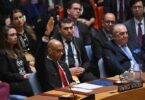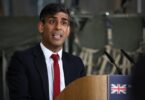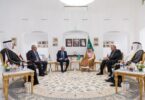Sabine Fischer
The February visit to Moscow of the EU High Representative for Foreign Policy Josep Borrell provided an opportunity to start 2021 in relations between Russia and the EU on a positive note. The High Representative was ready to offer the Russian leadership a dialogue and a softening of rhetoric, although he was criticized in the EU for this approach.
However, Moscow did not take advantage of this opportunity. Borrell was treated harshly, if not humiliatingly. As a result, relations between Russia and the EU, having not had time to recover from the shocks of 2020, are plunging into a new crisis.
Acceleration of erosion
In Russia, many perceived the pandemic as another confirmation that supranational entities like the EU are useless. Since last year, the Russian authorities and the media under their control have been repeating that authoritarian powers like China and Russia are more effective at dealing with the virus than Western countries. And Western democracies and, above all, the United States, on the contrary, have shown their failure: the pandemic has exposed the weaknesses of their political systems and split society. EU institutions turned out to be powerless in the face of the coronavirus and could not prevent some EU countries from putting their interests above supranational ones.
Indeed, the pandemic was covered in the European media in much more detail, which is logical for democracies with transparent political systems. In Russia, there is no such openness and never has been. With all the mobilization of the Russian health care system, independent sources report that the authorities, especially in the regions, have significantly underestimated the statistics on infections and deaths from Covid-19.
With several premature and contradictory statements about the success of the Sputnik V vaccine, the Russian leadership has only reinforced suspicions that this is a political issue for Moscow. For the spread of “fakes” about the pandemic, the authorities punished independent media, activists and doctors. In such conditions, it is not easy to understand how things really are with the coronavirus in Russia. But the data on excess mortality in 2020 published by Rosstat in early February suggests that the real death toll from coronavirus could exceed 300 thousand, which is more than four times higher than official data.
However, Moscow claims to have handled the pandemic much better than Western democracies and demands that other countries recognize this. But Brussels sees in the narrative of the Russian authorities just another attempt to destabilize the EU. Instead of joining forces to combat a common threat, Russia and the EU have drifted further apart in 2020. It is likely that this alienation will deepen due to closed borders and restrictions on international communication, which have almost completely cut off human-level contacts for the first time since the Cold War.
Navalny’s shock
If the impact of the pandemic on relations between Russia and the EU can be compared to erosion, then the poisoning of Alexei Navalny was a real earthquake. Relations between Moscow and Berlin have suffered the most.
On September 2, 2020, Angela Merkel announced that Navalny was poisoned with Novichok to silence him. The Russian leadership will not forgive the Chancellor for these words, or for how actively Berlin participated in the development of new anti-Russian sanctions. Berlin’s actions were perceived in Moscow as a ” stab in the back “, as a final rupture of ” special relations ” between Germany and Russia. In response, Moscow has repeatedly stated that Navalny could have been poisoned on German territory, and accused Germany of unwillingness to cooperate to clarify what had happened.
The Russian Foreign Ministry switched from words to deeds exactly when High Representative Borrell was on a visit to Moscow: the Ministry expelled diplomats from the German, as well as the Polish and Swedish embassies. Russian-German relations have long been going through difficult times, but the current crisis is especially dangerous and could lead to irreparable consequences. This, in turn, will seriously affect relations between Russia and the EU, where Germany has a leading role. There will be even fewer supporters of dialogue with Moscow in the EU.
Navalny’s return to Russia has drawn Germany and the EU into Russian domestic politics. It can be said that the result was a ” geopolitization ” of the Russian domestic agenda, which both sides will have to reckon with in the future. In the past, Navalny could hardly be called a pro-European or pro-Western politician. His program and slogans hardly touched on external issues and focused on internal Russian affairs such as the fight against corruption and United Russia – and all this with a nationalist tinge.
Nevertheless, when he was taken to Berlin for treatment, the Russian media unleashed a whole campaign trying to portray him as an agent of the West. If Navalny had remained in political exile in Germany, it would not have mattered much. However, he decided to go back and fight, and now both Navalny’s team and the Kremlin see the EU as a participant in this fight.
For the Kremlin, Navalny and his supporters are just another puppet in the hands of the hostile West. Navalny’s team is actively asking for help from Western countries: in their letter to the US President, which was also addressed to Brussels, they call for sanctions against 35 Russian officials and businessmen, which, according to the Kremlin, only ” confirms their status as foreign agents.”
The harsh reaction to the protests due to the arrest and sentence of Navalny shows that the confrontation between the authorities and society in Russia will continue in 2021. Growing public discontent will be met with wider repression. The outcome of this asymmetric confrontation is unclear, but it will clearly become more tense as the September Duma elections approach.
Darkness at the end of the tunnel
By the end of 2020, events in the post-Soviet space (in Belarus and Nagorno-Karabakh), as well as the American elections, had a serious impact on how Russia sees its foreign policy. There have been calls for a more realistic and restrained approach in relations with neighbors, for a more careful assessment of the balance of benefits and costs in this area. It was also said that Moscow should soften its attitude towards the West, because the Biden administration is going to consolidate it again.
How quickly Moscow and Washington agreed to extend the START-3 Treaty shows that some of these conclusions have been reached in the Kremlin as well. However, Russian policy in the near abroad has not changed. The Kremlin will not stop supporting Lukashenko and will not make concessions on Donbass, especially now, when Russia itself is restless.
Moreover, Russia’s recent demarches on Brussels and Washington are evidence that isolationist ideas are gaining popularity among the increasingly siloviki- dominated Russian leadership . The EU has received a clear signal : liberal values, human rights and freedoms are no longer viewed as a universal principle. Russia not only rejects the very notion of “international standards” and considers it impossible to discuss its domestic policy with the EU (or any other Western country), but also goes into a counterattack, pointing out to Western democracies their own weaknesses.
Apparently, Borrell was so coldly received in Moscow to discourage Western leaders from continuing to touch on Navalny. This, of course, will not happen, but you need to understand that this is just one of the ways in which Moscow is trying to move EU institutions away from its bilateral relations with individual countries of the union (although from this point of view, expelling diplomats during Borrell’s visit was a serious mistake). This is not a new approach, it has only taken on more distinct forms. EU countries should consider how to strengthen the position of Brussels. EU institutions should be more effective in relations with Russia. At a press conference with Sergei Lavrov, Borrell looked very dull, which does not paint the EU and should not be repeated in the future.
If last year, when the EU was chaired by Germany, Brussels was preparing to discuss the spheres of possible selective cooperation with Russia, now this cannot be expected. Now on the agenda are sanctions, the fight against Russian interference and disinformation, as well as money laundering in European countries.
As a result, the recent gloomy prophecy that Moscow could sever relations with the EU risks becoming a reality – at least in the areas of political engagement and security. However, the EU should take a broader view of its relations with Russia – and this applies not only to economic cooperation, but also to the issues of combating climate change, health care, stability in the Middle East, as well as other global and regional topics.
Finally, and most importantly, the EU must maintain ties with Russian society. Here Brussels should be realistic about what is now possible to achieve in Russia. The influence of the EU has never been sufficient to seriously change something in Russian society, and in the past two decades it has been steadily declining. The growing political tension will first of all push the Russian authorities to cut off public contacts – they are the most troublesome and the easiest to cut them off. This process is already under way.
The EU faces a daunting task in its relationship with Russia. It is necessary, on the one hand, to resist Moscow’s attacks, on the other, to protect our interests, and at the same time maintain a connection with Russian society. This will be doubly difficult to achieve, because Moscow seems to believe that there is nothing left to lose. Although, in fact, there is a lot at stake.
Courtesy: (carnegie.ru)






